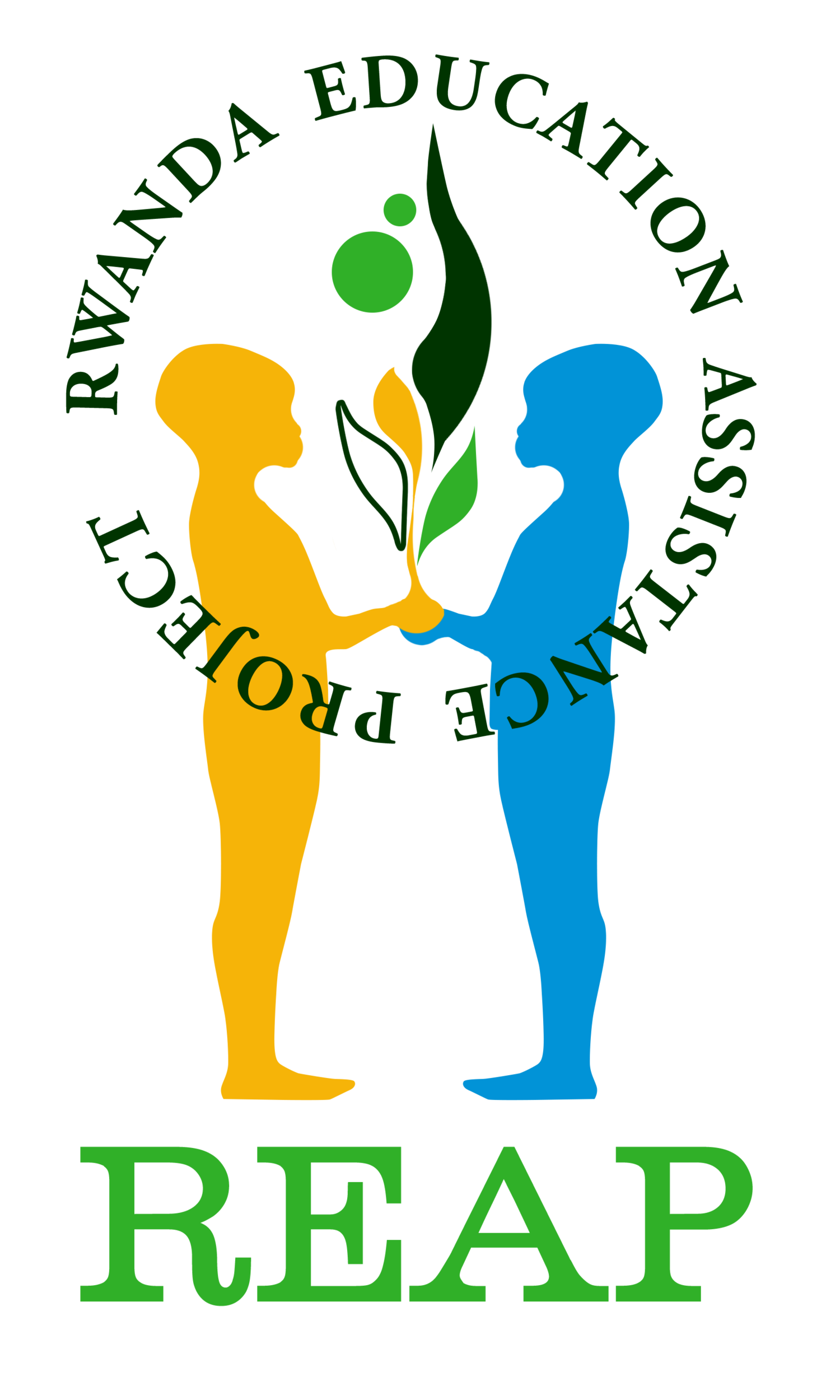“Let’s fight COVID-19 together”
REAP recognizes and addresses the myriad socio-economic factors that have an impact on community-members’ well being.
COVID-19 Community Public Health Campaign
REAP received a grant from the US Department’s Citizen Diplomacy Action Fund Rapid Response in 2020 that focused on addressing the need for accurate information about COVID-19 as well as ways to prevent its spread.
Called Kalendari INEZA, the project brought together community members along with the Musha Health Center to create 24 public health messages (2 for each month). Accompanying each message and month, children drew pictures to illustrate the messages.
MEDIATRICE, A NURSE FROM MUSHA HEALTH CENTER DEMONSTRATES PROPER HAND WASHING
Reproductive and Sexual Health
REAP engages the community in sexual and reproductive health campaigns through student clubs. Students create and perform plays and songs presented to students at the Duha school as well as to the larger Musha community. Under the guidance of a Duha teacher mentor, the clubs are also involved with the operation of the Girls' Room, which provides refuge and support to menstruating girls.
Prenatal Health Care and Early Childhood Development
To reduce maternal and under-five mortality rates, REAP, in partnership with Musha Health Center, conducts programs for mothers with children aged 0 to 6 and pregnant women for prenatal and early childhood health care. Services include group conversations, vaccinations, nutritional workshops and family planning.
Rwamagana School of Nursing and Midwifery
Collaboration between the Rwamagana School of Nursing and REAP allows nurse interns to go into the community to visit homes in order to teach families nutrition practices such as growing vegetables and fruit trees. Additionally, the nurse interns encourage community campaigns around communicable and non-communicable diseases, maternal care and family planning.
Sanitation and Access to Water
REAP has built 12 toilets at the Duha School and 5 toilets at the CLCL to maintain sanitary standards and prevent the spread of communicable diseases. In a community where access to water is challenging, we’ve ensured adequate supply of water to the Duha Complex School as well as the CLCL.



